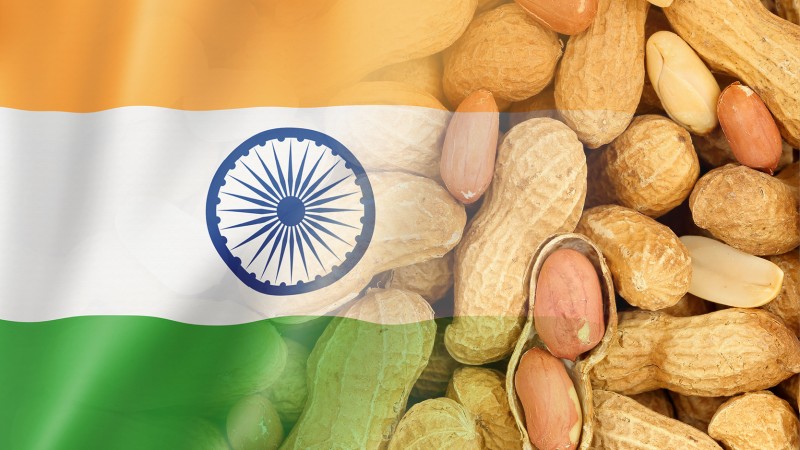Peanuts: “The prices in India will not decrease”
December 23, 2022 at 1:00 PM ,
Der AUDITOR

Which were the major difficulties faced by the Indian peanut market in 2022? Were they mainly caused by the ongoing threat of the Ukraine war and the resulting energy crisis and inflation, or do you think they would have occurred in a calmer year as well?
The Indian peanut market is going through difficulties, including a loss in acreage, untimely rain, a crop reduction and an increase in farmgate vulnerability. The market price of peanut oil is rising due to inflation. The situation in Ukraine is not the primary concern, rather it is an addition to the overall problems.
Which effects of the coronavirus pandemic are still noticeable?
In the preceding quarters, the industry rebounded and displayed a significant improvement. The coronavirus is long gone, and local pressure is the primary criterion for the peanut industry now.
In most markets, prices for feed and food commodities have increased significantly over the past year, also peanuts not so much. Still, do you think that buyers will have to adjust to these higher prices in the long term, or do you expect prices to decline again?
It is guaranteed that the price in India will not decrease because the Indian government is buying peanuts through the MSP programme, which has set a benchmark price for the market. Despite lower worldwide demand, the price is rising every year. Local players are currently driving the market's supply and price chains.
Has the demand situation changed compared to 2021 and 2020? Do you think that some buyers and processors have had to readjust their needs?
More specifically, demand has grown by 3-5% since pre-covid levels. The market is overwhelmed with new oil processors and snack producers, which puts pressure on the existing stakeholders.
Furthermore, climate change and crop problems are real and pose a threat to all types of food and feed around the world and will most likely continue to do so. How would this affect the Indian peanut market in the future and what could businesses in this industry do to improve this situation?
The outcome is greatly impacted by the unseasonal rains because the majority of Indian crops are rain-fed. Unseasonal rains in several parts of Karnataka have resulted in significant losses. In the previous five years, the acreage decreased by no more than 8–10%. Due to drought, there has been a significant transition in some areas. In order to alleviate the stress caused by the drought and an abundance of rain, new varieties are being developed by research institutions.
Considering the current crises (pandemic, energy, wars, climate change etc.), what do you think the Indian peanut market has to prepare for in the coming year? Are there any major consequences to be expected for the 2023/2024 season in terms of supply and demand?
The supply and demand situation will be difficult in the next year. Given that Indian agriculture is still an unorganised industry, forecasting the 2023/2024 season is exceedingly difficult.





